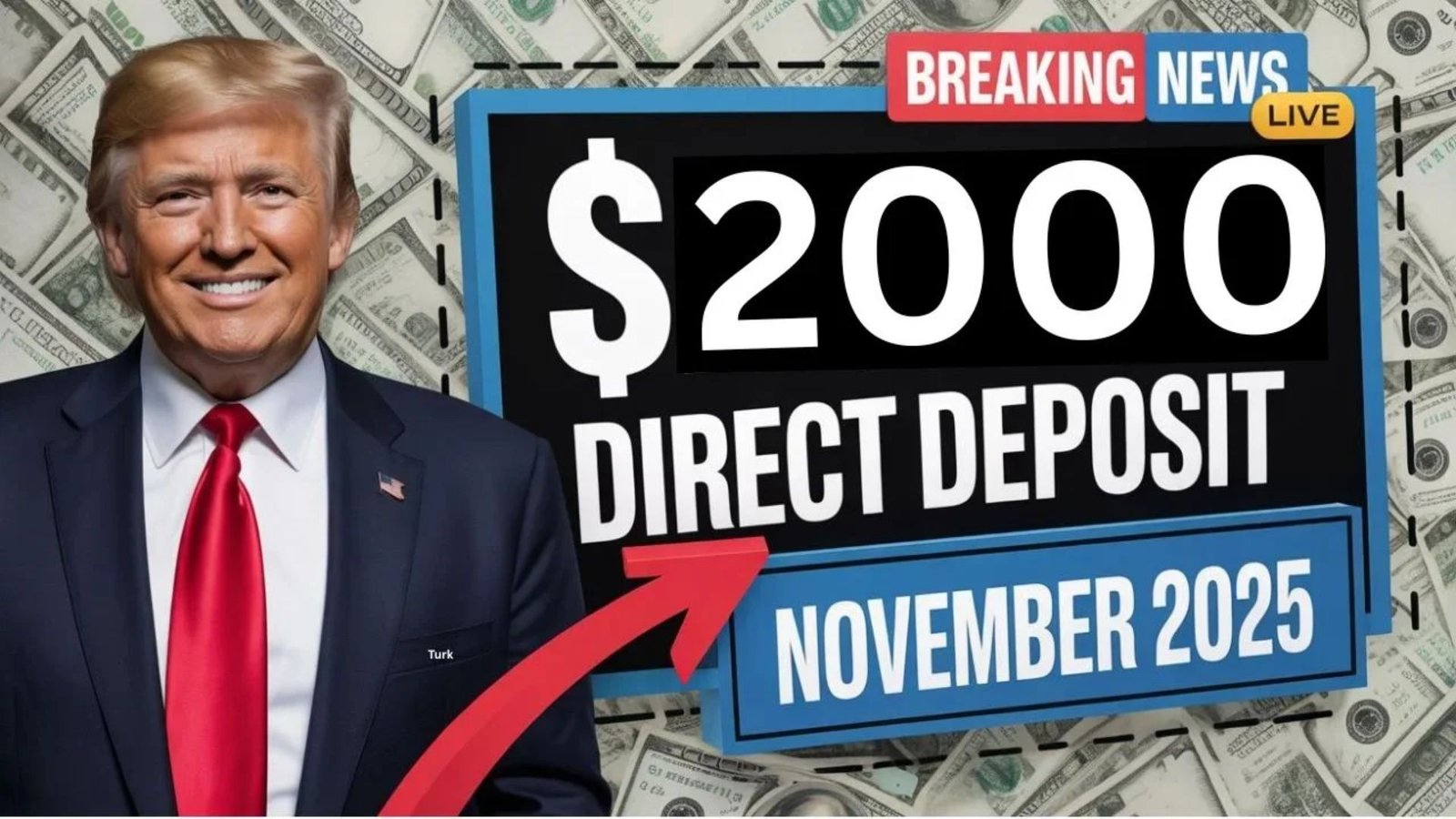Imagine scrolling through your feed and spotting headlines screaming about a fat $2000 check from the IRS landing in your bank account this month. Heart races, right? In tough economic times, who wouldn’t love extra cash for bills or that holiday splurge? But before you start budgeting that windfall, let’s cut through the hype.
This post dives into the truth behind the viral buzz on a “November 2025 stimulus check,” why it’s stirring emotions, and what you should actually focus on for financial peace. Stick around—you’ll walk away smarter and less stressed.
What’s the Buzz About a $2000 IRS Stimulus Check?
Rumors of a $2000 IRS stimulus check for November 2025 exploded online recently. Folks are sharing posts claiming it’s a new round of pandemic-style relief. But is it legit? Spoiler: It’s tied to President Trump’s tariff rebate idea, not a straightforward IRS payout. Let’s unpack this without the clickbait fog.
A Quick History of U.S. Stimulus Payments
Stimulus checks aren’t new—they’re Uncle Sam’s way of juicing the economy during crises. Back in 2020-2021, three rounds hit mailboxes: $1,200, $600, and $1,400 per adult. These Economic Impact Payments helped millions weather COVID shutdowns. Fast-forward to now, whispers of more are fueled by election promises, but history shows they’re rare and targeted.
| Stimulus Round | Amount per Adult | Eligibility | Total Distributed |
|---|---|---|---|
| 1st (2020) | $1,200 | Most adults | $267 billion |
| 2nd (2020) | $600 | Most adults | $146 billion |
| 3rd (2021) | $1,400 | Adjusted income limits | $411 billion |
The Truth: Is It Happening in November 2025?
Short answer: No, there’s no confirmed $2000 IRS stimulus check dropping this November. The chatter stems from Trump’s “tariff dividend” plan—rebates from import taxes, eyed for mid-2026 at earliest. Economists are skeptical, citing inflation risks and uncertain revenue. The IRS site? Silent on any 2025 checks. It’s proposal, not policy—yet.
Why This Rumor Hits Home Today
With inflation biting and holidays looming, dreams of quick cash feel like a lifeline. This buzz highlights our craving for relief amid rising costs. But false hope? It distracts from real tools like tax credits or savings hacks. Understanding the truth empowers you to plan smarter, not chase myths.
How You Can Benefit and Stay Prepared
Can’t bank on rumors? No sweat—focus on what you control. Check your 2024 tax return for missed credits like the Earned Income Tax Credit (up to $7,830!). Build an emergency fund or tweak your budget app. If tariffs do yield rebates, middle-income families might qualify first. Stay tuned via IRS.gov alerts.
Fascinating Facts and Stats on Stimulus Checks
Did you know? The 2021 round reached 85% of households, slashing child poverty by 30% temporarily. Yet, it spiked inflation by 1-2 points. Here’s a pros/cons snapshot:
| Pros of Stimulus Checks | Cons of Stimulus Checks |
|---|---|
| Quick economic boost | Fuels short-term inflation |
| Helps low-income families | High admin costs ($2B+ last round) |
| Simple to distribute | Uneven benefits (wealthy get less) |
Pro Tips from Financial Experts
Experts like those at Investopedia say: Diversify hope—don’t wait for windfalls. Track proposals via Congress.gov. Chat with a free credit counselor. And remember, steady investing beats one-off checks every time. Your future self will thank you.
Frequently Asked Questions
Q: Will I get a $2000 check soon?
A: Unlikely for November 2025—watch for 2026 updates.
Q: Who qualifies for tariff dividends?
A: Possibly middle-income earners; details pending.
Q: How do I check past stimulus status?
A: Use the IRS Recovery Rebate Credit tool online.
Q: Are there other 2025 payments?
A: Yes, like Social Security COLA increases.
In wrapping up, the $2000 IRS stimulus check rumor for November 2025 is more smoke than fire—a tantalizing tease rooted in policy talk, not action. Key takeaway? Stay informed, skip the scams, and build your financial toolkit today. Share this with a friend dodging the hype, and explore our guides on tax tips or budget wins. What’s your go-to money move? Drop a comment below!



